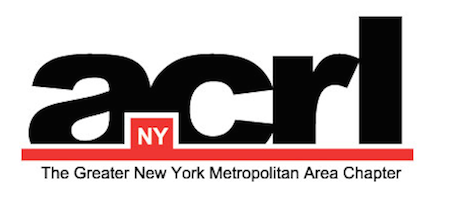ACRL/NY Professional Development Committee’s Spring 2023 program
How Motivation and Increased Productivity can Lead to Burnout
Speaker: Madeline Ruggiero, Librarian, Queensborough Community College, CUNY
- WHEN: Friday, March 3, 2023, 2:00 p.m. to 3:00 p.m.
- SLIDESHOW PRESENTATION
Program Summary
Presenter, Madeline Ruggiero, responded to a book chapter proposal after the pandemic related to burnout, hoping to write about being a “self-identified boomer” and older librarian re-entering the field and learning how to adapt to changes in librarianship. She had started working at Queensborough Community College and had just become full time in 2019. While her chapter was not published, she instead transformed it into this presentation.
When preparing for her potential book chapter, Madeline was asked to read an article on the Copenhagen Burnout Inventory (CBI). This was a research tool used to look at work related burnout among academic librarians. The questions in the CBI asked academic librarians about work burnout specifically (see slides) while another inventory tool – the MBI multidimensional survey asked questions that were more in depth and relational (see slides). The multidimensional survey questions show how burnout can be related to more than just a lack of support or too much work but also about the work someone is doing and their motivation. Once someone experiences burnout, three of the most important aspects reported include fatigue, withdrawal, and lack of efficacy.
Work motivation can be both intrinsic – from being excited and passionate about our work – and extrinsic – related to salary, awards, praise. Supportive job resources are needed for to help build motivation and create an environment which can decrease job stress while increasing engagement and productivity. These include social support, supervisory coaching, professional development, and autonomy.
When someone is engaged at work, they are involved, have focused energy and are absorbed in their work. Engagement is the positive antithesis of burnout. However, because of this absorption, we can also experience burnout after a period of vigor, passionate engagement, and motivation to work. Over-engagement can also lead to burnout. Therefore, job satisfaction does NOT always lead to lower rates of burnout as researchers have theorized. It can also be cause by high motivation. This can be experienced after a period away from work which lead people to dive into work in a positive way and become burned out.
Changes in librarianship that can lead to engagement and burnout include technostress, the evolving role of librarians and the demands of tenure. Technostress – the constant need to keep up with technology as it changes – can lead to motivation as people are engaged in learning and adapting. Academic librarians can feel exhaustion and fatigue by being teachers, scholars, presenters, administrators, etc, all at the same time. However, it’s also engaging to be involved in any areas. And lastly, those who are on the tenure track or tenured who need to write in order to keep up can feel motivated in both positive and negative ways.
Mitigating burnout needs to happen on an institutional level – not just people taking vacations or meditating. Teleworking can be an option for mitigating burnout in certain people. Libraries have been able to expand services in certain ways because of the pandemic and explosion of telework. Workers can feel more productive from teleworking because they have autonomy, flexibility, more time without commuting and a better work/life balance.
